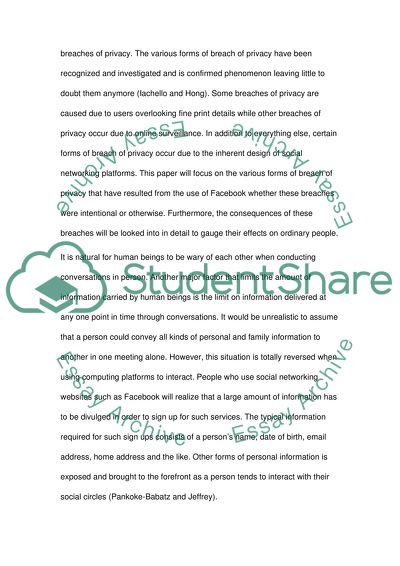Cite this document
(“How Facebook has Destroyed Privacy Boundaries Essay”, n.d.)
How Facebook has Destroyed Privacy Boundaries Essay. Retrieved from https://studentshare.org/english/1451468-how-facebook-has-destroyed-privacy-boundaries
How Facebook has Destroyed Privacy Boundaries Essay. Retrieved from https://studentshare.org/english/1451468-how-facebook-has-destroyed-privacy-boundaries
(How Facebook Has Destroyed Privacy Boundaries Essay)
How Facebook Has Destroyed Privacy Boundaries Essay. https://studentshare.org/english/1451468-how-facebook-has-destroyed-privacy-boundaries.
How Facebook Has Destroyed Privacy Boundaries Essay. https://studentshare.org/english/1451468-how-facebook-has-destroyed-privacy-boundaries.
“How Facebook Has Destroyed Privacy Boundaries Essay”, n.d. https://studentshare.org/english/1451468-how-facebook-has-destroyed-privacy-boundaries.


